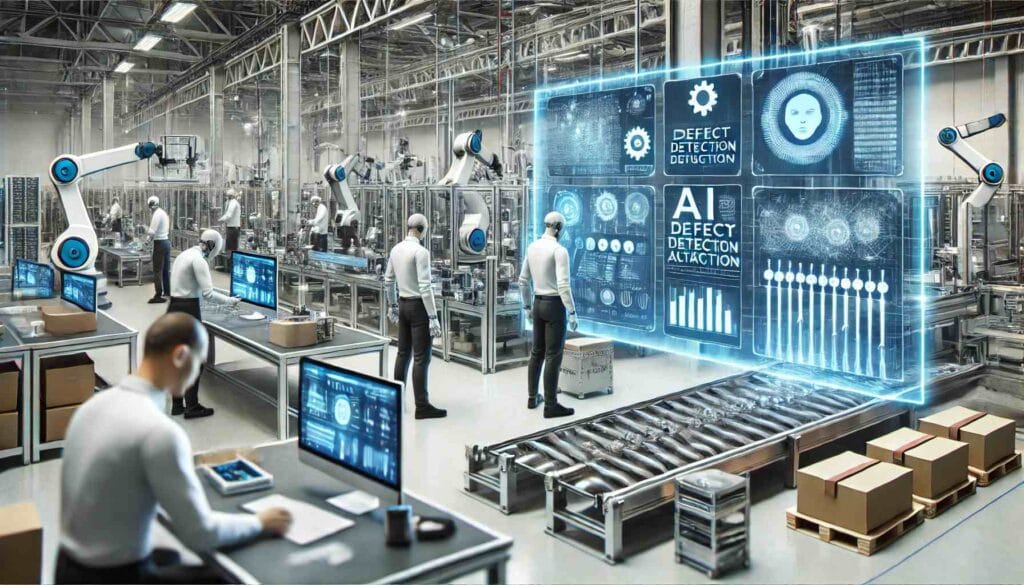Can Artificial Intelligence Act as a Quality Control Expert in Various Fields?

Artificial Intelligence (AI) has made significant advancements in recent years, transforming industries across the globe. One of the most promising applications of AI is in the field of quality control, where it can potentially take on the role of a quality control expert. In this article, we will explore how AI can be leveraged for quality control tasks, its benefits, challenges, and potential future developments.
1. AI in Quality Control: An Overview
Quality control (QC) involves the process of ensuring that products meet certain standards of quality, safety, and performance. Traditionally, QC was performed manually, with human inspectors using their knowledge and experience to identify defects or inconsistencies in products. However, AI systems, powered by machine learning (ML) and computer vision (CV), are now able to automate many of these tasks, providing faster and more accurate results.
2. How AI Can Replace or Assist Human Quality Control Experts
AI can be applied to various aspects of quality control, including:
- Defect Detection: Using computer vision, AI systems can analyze images of products and detect defects, such as scratches, cracks, or color inconsistencies. This process can be done in real-time, reducing the chances of human error.
- Predictive Maintenance: AI can be used to predict when equipment is likely to fail or require maintenance. By analyzing historical data and identifying patterns, AI can help reduce downtime and ensure that machinery is functioning optimally.
- Process Optimization: AI can analyze production processes and suggest optimizations to improve quality, reduce waste, and lower costs. It can identify inefficiencies that human workers might overlook.
- Automated Testing: AI can conduct automated testing of products to verify their performance under different conditions, ensuring they meet the required standards.
3. Benefits of AI in Quality Control
- Accuracy and Consistency: AI systems do not suffer from fatigue or human biases, providing consistent and highly accurate results in quality control processes.
- Speed and Efficiency: AI can process large amounts of data and perform tasks at speeds far beyond human capabilities, significantly reducing the time required for quality control inspections.
- Cost Savings: By automating routine tasks, companies can reduce labor costs and avoid the expenses associated with human errors, defective products, and rework.
- Scalability: AI can easily scale to meet the needs of large manufacturing operations, handling vast amounts of data and processing inspections in parallel.
4. Challenges in Implementing AI for Quality Control
While AI offers numerous benefits, there are also challenges to its implementation in quality control:
- Data Quality: AI systems require high-quality data to function properly. If the data used for training AI models is incomplete or inaccurate, the system’s performance may be compromised.
- Initial Investment: The cost of implementing AI-driven quality control systems can be high, especially for small or medium-sized businesses. The initial investment in hardware, software, and training can be a barrier to adoption.
- Lack of Human Judgment: While AI is excellent at detecting patterns and anomalies, it still lacks the nuanced judgment and intuition that human experts bring to the table. In some cases, human oversight may still be required.
- Integration with Existing Systems: Integrating AI solutions with existing quality control processes can be complex. It requires a clear understanding of the current workflow and the technical expertise to implement AI technologies seamlessly.
5. The Future of AI in Quality Control
The future of AI in quality control looks promising. As AI technology continues to evolve, we can expect even more sophisticated systems that can handle a broader range of tasks and make more accurate predictions. For instance, AI might be able to analyze not only visual data but also sensor data from machines, improving defect detection and enabling real-time adjustments in the production process.
Moreover, AI’s ability to learn from past mistakes and improve over time will likely lead to increasingly refined quality control processes. This will ultimately result in higher quality products, greater efficiency, and a reduction in costs for manufacturers.
Conclusion
AI has the potential to revolutionize the field of quality control by providing faster, more accurate, and cost-effective solutions. While there are challenges to overcome, the benefits of AI in quality control are undeniable. In the future, we can expect AI to play an even greater role in ensuring product quality, making the role of human quality control experts more focused on oversight and strategic decision-making rather than routine inspections.
Source : Medium.com




